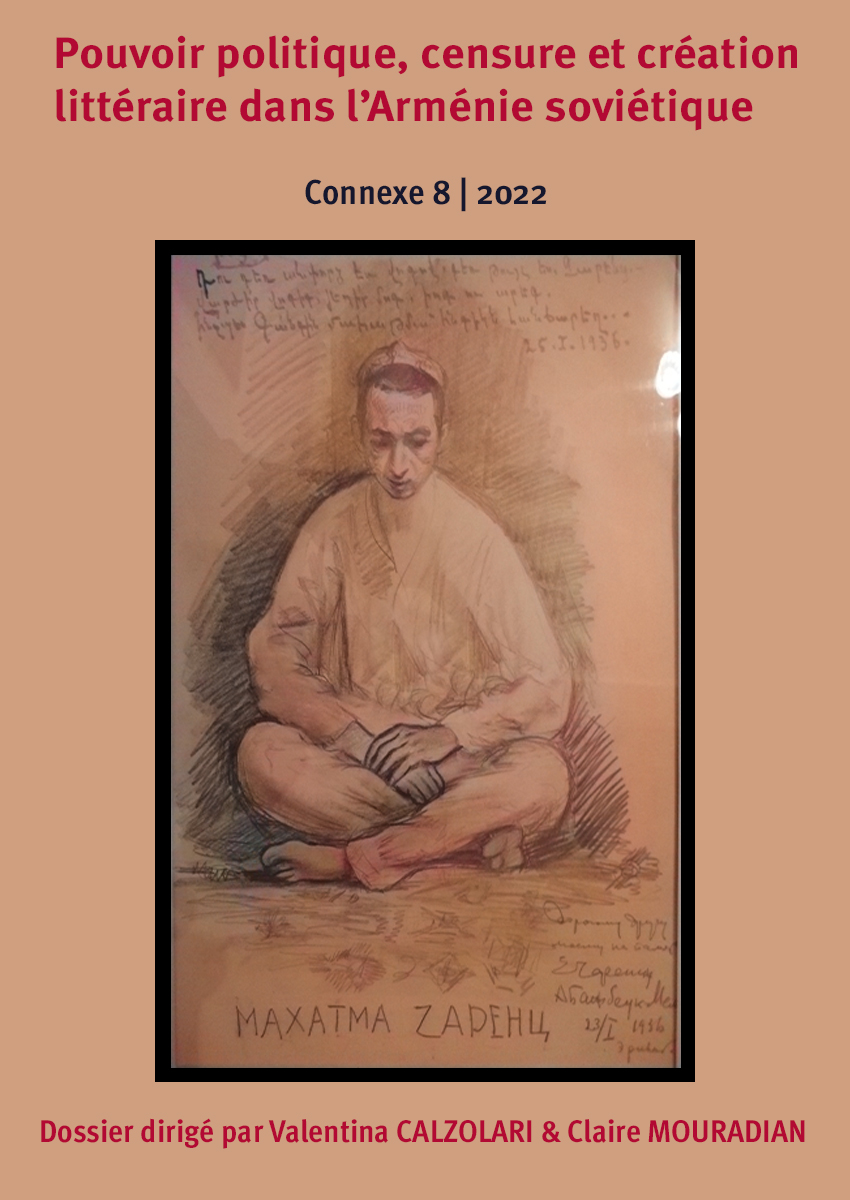Vol. 8 (2022): Political power, censorship and literary creation in Soviet Armenia

This Special issue, co-directed by Valentina Calzolari and Claire Mouradian, opens with an introductory article by Claire Mouradian, which focuses on Soviet-Armenian literature and studies the relationship between the Communist power and the writers, following the various phases of the history of the USSR. Elisabeth Mouradian Venturini’s article deals with Yeghishe Ch’arents’, a poet inspired by the internationalist revolution, and studies this writer’s attachment to the Armenian national theme. Valentina Calzolari analyses Gurgen Mahari’s Barbed Wires on Blossom and recalls the censorship that targeted, for different reasons, this work of testimony on the Gulag, as well as the novel Burning Orchards, by the same author. Vartan Matiossian’s article focuses on the relationship between Soviet Armenia and the Diaspora through the life and work of Kostan Zarian, and shows the project of nation building through literature dear to this writer. Finally, Cécile Vaissié analyses the travelogues of Vasily Grossman and Simone de Beauvoir, and studies their complementary views on Armenia, its society, and its literary world in the 1960s.
The “Open Fora” section offers, in an annotated translation by Haïk Der Haroutiounian, an essay by poet Violet Krikorian (Grigorian), who analyses the literary bridge between Vahan Terian and Yeghishe Ch‘arents’. At the time of the second independence in 1991, she retrospectively questions the relationship between literature and politics, as well as the role of the intelligentsia vis-à-vis the Sovietisation.
In the section “Stop on Archives”, the article by David Gasparian, in Claire Mouradian’s annotated translation, gives a concrete example of censorship in the dark years by commenting on one of the lists of works censored during the Great Terror.
Without exhausting the subject, this dossier offers a diversity of approaches that may help shed light on a period and a literature that are still little known and little studied.
This volume has been enriched by several texts outside the main issue:
- in the “Varia” section, Radzhana Buyantueva’s article analyses the role of foreign and international (Western) NGOs in Russian LGBT activism;
- in the “Open Fora” section, Mikhaïl Minakov analyses a century of Ukrainian political system; Vincent Exiga and Marina Fedorovsky convey in their article the voices of five Armenian feminists involved in various forms of activism. Finally, the article by Tania, an independent Russian artist, gives us in the form of a diary her observations on the changes that have affected Moscow and Russia since February 2022, and she asks herself these obsessive and inescapable questions: how could this happen? Could something have been done to avoid the catastrophe?
Finally, five book reviews conclude this Volume 8 of Connexe.



